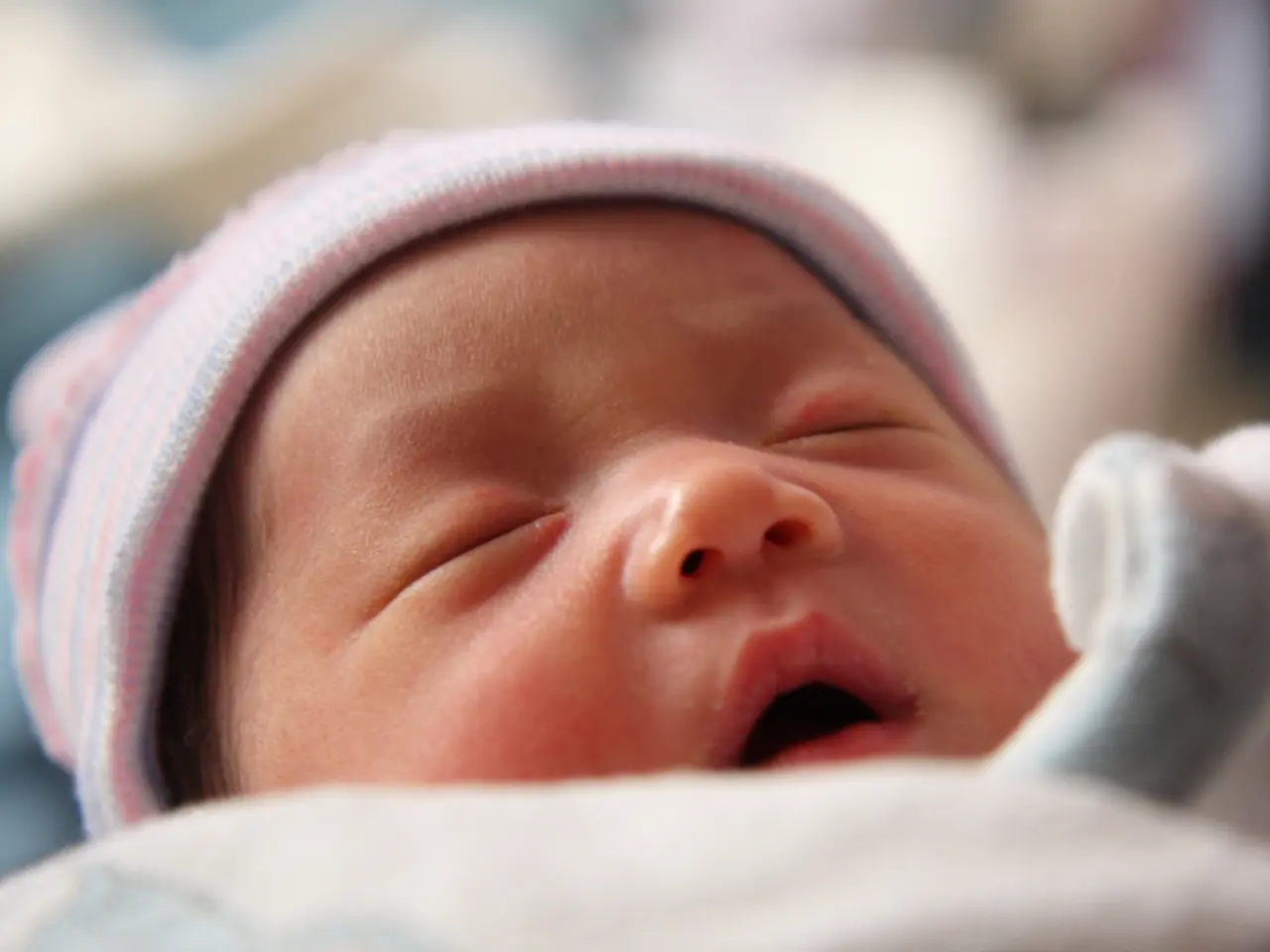Children's Safety and Efficacy of Melatonin: Dosage Guidelines and Potential Adverse Reactions
In the quest to help children with sleeping difficulties, parents may be considering melatonin as a potential solution. This hormone, naturally produced in the body, can aid in regulating the circadian rhythm that determines sleeping and eating patterns. However, it is essential to approach its use with caution and under medical supervision.
For most children, a dosage of 0.5 mg to 5 mg is generally sufficient. The American Academy of Sleep Medicine recommends a dose of 0.15 mg/kg, taken 1.5 to 2 hours before bedtime. However, for children with autism spectrum disorder, it is crucial to start with a low dose and monitor closely.
Melatonin comes in various forms, such as gummies and liquids, specifically designed for children. It is typically taken before bedtime for treating sleep problems. It is important to note that the FDA considers melatonin as a dietary supplement rather than a medication, with no official dosage guidelines for children or adults.
While the side effects of melatonin in children are generally mild, they can include dizziness, nausea, headaches, and fatigue. These effects are more common with higher doses. In some cases, hospitalizations and fatalities have been reported, especially due to issues with supplement labeling and contamination. Therefore, it is advisable to only use melatonin products that are pharmacy-compounded or prescription-regulated to avoid contamination and inconsistent dosing.
Some studies suggest that melatonin may help children fall asleep faster. For instance, a 2017 study concluded that melatonin was significantly more effective at reducing the time it took for children to fall asleep than a placebo. Similarly, a small 2015 study found that children who took 9 mg of sustained-release melatonin fell asleep 11.4 minutes faster than children who took a placebo.
However, the potential benefits of melatonin for children with sleeping difficulties should be balanced against its long-term effects, which are still largely unknown. A review of five studies suggests that melatonin seems to have positive effects on treating the symptoms of insomnia in children with ADHD, but further research is required to confirm these findings.
In summary, if lifestyle changes such as setting a regular bedtime, establishing a pre-bedtime routine, only using the bed for sleeping, keeping the bedroom cool, turning off electronic devices, and making the bedroom dark and quiet are unsuccessful, a doctor or pediatrician should be consulted for other treatment options. The recommended dosage of melatonin for children varies based on age and condition, and it is crucial to start with the lowest effective dose. Always consult a healthcare professional for advice on the potential benefits of melatonin for children with sleeping difficulties and other treatment options.
- Pfizer, the pharmaceutical company, does not produce melatonin, but its science and research division has studied the hormone's role in regulating sleep in both children and adults.
- The science of mental health and health-and-wellness indicates that while melatonin can aid in regulating the circadian rhythm and potentially help children fall asleep faster, its long-term effects, especially for children with conditions like autism spectrum disorder, are still largely unknown.
- Despite the mild side effects of melatonin like dizziness, nausea, headaches, and fatigue, it is essential to approach its use with caution, starting with a low dosage and under medical supervision, as incorrect dosing or supplement contamination can lead to serious health issues.
- In the pursuit of effective treatment for children experiencing sleeping difficulties, it is crucial for parents to consult their doctor or pediatrician before considering melatonin, as lifestyle changes may first prove beneficial and a variety of dosages and forms of melatonin exist, each requiring careful consideration.




